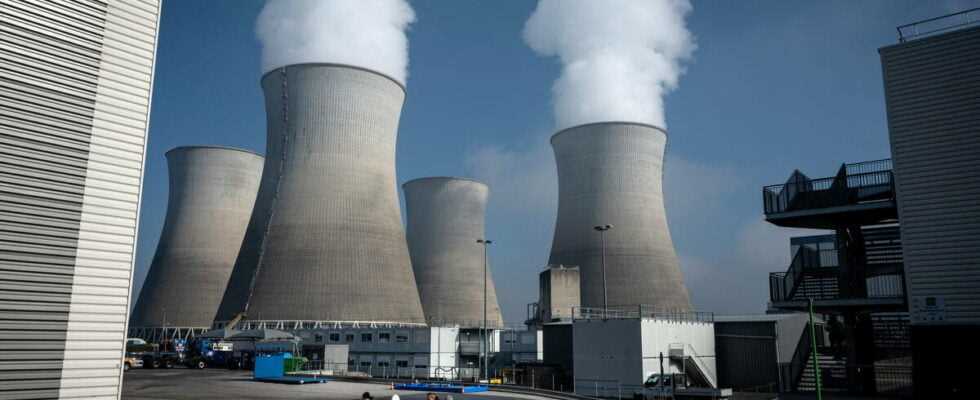After much debate and disagreement among the 27 Member States of the Union, the European Commission published on Wednesday its proposal relating to the taxonomy, in order to better direct the financing of activities contributing to the reduction of greenhouse gas emissions. greenhouse and thus achieve climate neutrality by 2050. The proposal notably includes fossil gas and nuclear energy as “transition” energies, i.e. which make it possible to move from the production of carbon-intensive electricity to CO2-neutral electricity in “clear and strict conditions”. Which fix, “for nuclear activities, that they meet nuclear and environmental safety requirements; and, for gas activities, that they contribute to the abandonment of coal in favor of renewable energy sources”, details the Commission.
By respecting these criteria, gas and nuclear are, in fact, temporarily placed at the same level as wind or solar power, considered as “green” and “sustainable” energies from an environmental point of view, and will therefore be able to benefit from the public and private money intended for the ecological transition. An aberration for Neil Makaroff, head of European policies at Réseau Action Climat.
What do you think of the European Commission’s decision?
It is a fundamental mistake to classify fossil gas and nuclear as transition energies because they do not meet the sustainability criteria of the taxonomy. Gas has supplanted coal: it is now the leading source of greenhouse gas emissions in the electricity sector in Europe.
As for nuclear power, it poses problems in terms of safety and waste. Knowing that it takes fifteen years to build a power plant, the notion of transitional energy is all the more questionable. To continue to invest in these infrastructures is to derail our European climate trajectory. Yet, as part of the Green Deal, Europe has committed to reducing its net greenhouse gas (GHG) emissions by at least 55% by 2030 (compared to 1990), which implies to reduce its gas consumption by 25% by 2030. We are in the midst of a contradiction.
A transitional energy, what does that mean concretely?
The criteria established by the European Commission aim to classify “green” gas and nuclear on a provisional basis. In practice, it will therefore be possible to apply for a building permit for nuclear power plants until 2045. For gas, power plants which will emit less than 270 grams of CO2 per kilowatt-hour – the most efficient, but which remain very emitting – will be able to benefit from this European green label until 2030. And they will not stop after this date… They will continue to operate because, once built, their lifespan is around twenty or thirty years. Instead of breaking with our dependence on fossil gas and lowering our consumption, we are doing the opposite.
What abuses can we fear?
By integrating these two energies into the taxonomy, this will allow them to obtain sources of additional public and private investment on a European scale. Classifying nuclear and gas as green energies amounts to diverting billions of euros dedicated to the ecological transition, normally in favor of low-emission mobility or thermal renovation… towards polluting energies.
It is a dangerous greenwashing operation for the climate. And this will be done to the detriment of the development of renewable energies, which risks falling considerably behind schedule.
France led an offensive in favor of this proposal…
France has a double discourse. At COP26, Emmanuel Macron mentioned that we had to get out of fossil fuels. At the same time, he conducted negotiations with several States, including Poland, to integrate gas and nuclear into the European taxonomy.
Why ? Because without the support of countries favorable to gas, France would not have been able to obtain the classification of nuclear power as a green label. The survival of the nuclear industry in France depends on it. The Head of State has never made a secret of his support for the atom.
However, the proposal has not yet been voted on…
The European Parliament and the Council of the European Union have four months to examine the proposal and to express objections to it. So the battle is not over. Many Member States such as Spain, Portugal, Luxembourg, Denmark and Austria have risen up against the decision to integrate gas or nuclear into the European taxonomy.
We have a solid majority of member states in favor of this European decision in the Council, especially under the influence of France, which holds the presidency. It is in Parliament where everything will be decided. The deputies are very divided on the question and it is likely that the majority (fixed at 353, excluding abstentions) of them will vote against this green label.
Austria has taken the lead and has already announced its intention to file a complaint against this proposal…
It is a last resort. Austria will take the Commission to the European Court of Justice. She considers that this proposal does not respect the criteria of the European taxonomy. That gas and nuclear have no place there. But it is a long legal battle that remains uncertain.
